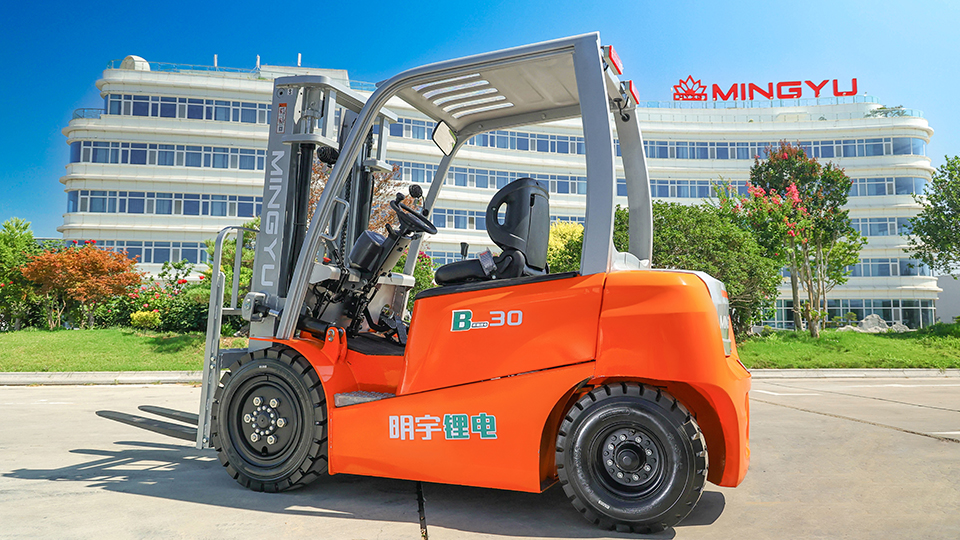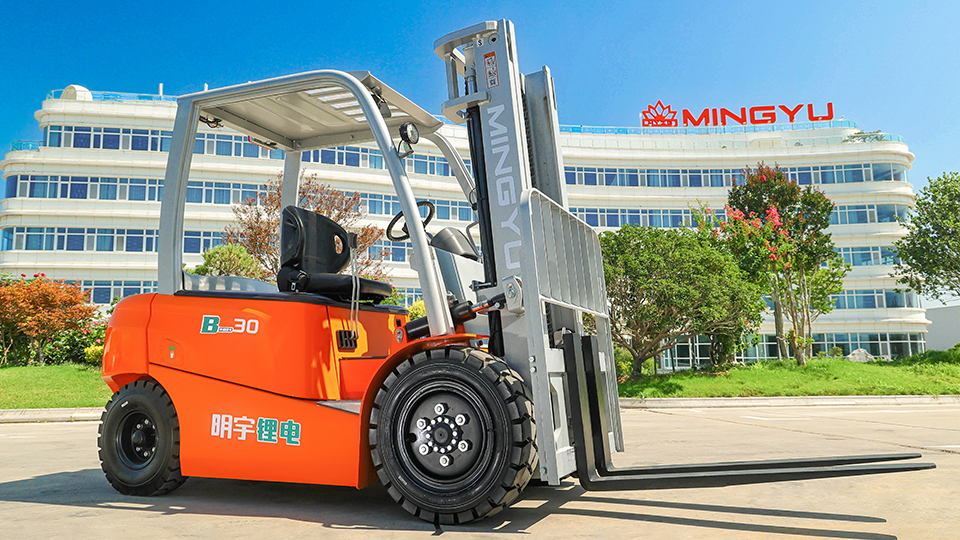
The rapid evolution of electric forklifts has made them a dominant force in material handling, particularly for indoor and environmentally sensitive operations. As businesses increasingly prioritize sustainability, operational efficiency, and reduced noise pollution, the demand for information on these powerful machines has surged. For anyone looking to understand, purchase, or maintain electric forklifts, a wealth of resources exists across various platforms. This 2000-word technical article will guide you through where to find comprehensive and reliable information about electric forklifts.
I. Manufacturer Websites and Dealerships
The most direct and often most detailed source of information on specific electric forklift models comes from the manufacturers themselves and their authorized dealerships.
1. Official Manufacturer Websites
Virtually every major forklift manufacturer has a dedicated section on their website for electric forklifts. These sites are invaluable for:
Product Catalogs and Brochures: Providing detailed specifications (load capacity, lift height, travel speed, turning radius, battery options, motor types, etc.), dimensions, and features for each model.
Technical Specifications Sheets (Spec Sheets): These are often downloadable PDFs offering granular data essential for engineers, logistics managers, and procurement teams. They include information on voltage, battery capacity (Ah, kWh), charger compatibility, and performance curves.
Technology Overviews: Many manufacturers showcase the innovative technologies integrated into their electric forklifts, such as advanced battery management systems (BMS) for lithium-ion batteries, regenerative braking, telematics integration, and ergonomic designs.
Case Studies and Testimonials: These can provide real-world examples of how their electric forklifts perform in various industries and applications, offering insights into operational benefits.
"Build Your Own" Tools: Some manufacturers offer online configurators where you can customize a forklift with different mast types, attachments, battery options, and tires, helping visualize the final product and its capabilities.
News and Updates: Manufacturers often announce new model releases, technology breakthroughs, and sustainability initiatives on their news pages.
Leading Electric Forklift Manufacturers (Examples):
Toyota Material Handling: A global leader, offering a wide range of electric counterbalance, reach, and pallet trucks. Their website is comprehensive.
KION Group (Linde, Still): Renowned for high-performance electric forklifts, particularly in Europe.
Crown Equipment Corporation: Known for their advanced ergonomic designs and integrated technology in electric reach trucks and order pickers.
Jungheinrich AG: Another prominent European manufacturer with a strong focus on electric warehouse equipment and automation.
Hyster-Yale Materials Handling: Offers a diverse portfolio of electric forklifts for various applications.
Mitsubishi Logisnext Americas (Cat Lift Trucks, UniCarriers, Mitsubishi Forklift Trucks): A major player with a broad range of electric products.
BYD Company Ltd.: A rapidly growing manufacturer known for its focus on lithium-ion powered electric forklifts.
Clark Material Handling: A historical name in forklifts, offering a solid range of electric models.
Doosan Industrial Vehicle: Provides a variety of electric forklifts for different industrial needs.

2. Authorized Dealerships
Local dealerships are critical points of contact. They offer:
Expert Sales Advice: Dealers have product specialists who can assess your specific operational needs and recommend the most suitable electric forklift models and battery solutions.
On-site Demos: Many dealers can arrange demonstrations of electric forklifts at your facility, allowing you to experience their performance firsthand.
Rental Options: If you're considering a transition to electric, renting an electric forklift can be an excellent way to test its suitability for your operations before committing to a purchase.
Parts and Service: Dealers are the primary source for genuine parts, scheduled maintenance, and emergency repairs for electric forklifts, including battery servicing.
Used Equipment: Many dealerships also sell quality used electric forklifts, which can be a cost-effective option for some businesses.
II. Industry Associations and Organizations
Industry associations serve as central hubs for information, standards, and best practices related to material handling equipment, including electric forklifts.
1. Industrial Truck Association (ITA)
The ITA is the leading organization for industrial truck manufacturers and suppliers in North America. Their website is an excellent resource for:
Market Intelligence: Access to statistical data on forklift shipments, including trends in electric forklift adoption.
Engineering and Standards Information: ITA is instrumental in developing and promoting safety codes and standards (often in conjunction with ANSI and ASME) that directly apply to electric forklifts, such as those related to battery design, charging systems, and electrical safety.
Forklift Classifications: The ITA defines the widely recognized classification system for powered industrial trucks, including Class 1 (Electric Motor Rider), Class 2 (Electric Motor Narrow Aisle), and Class 3 (Electric Motor Hand or Hand/Rider). Understanding these classifications helps in selecting the right type of electric forklift.
Safety Resources: Information on operator training, safety guidelines, and events like National Forklift Safety Day.
2. Material Handling Institute (MHI)
MHI is the largest material handling, logistics, and supply chain association in North America. They organize major trade shows and provide educational resources:
Trade Shows (e.g., ProMat, MODEX): These biennial events are unparalleled opportunities to see the latest electric forklift models from numerous manufacturers, attend educational seminars on electrification and battery technology, and network with industry experts.
Educational Resources: MHI offers white papers, webinars, and publications on various material handling topics, often including comprehensive sections on electric forklifts and their integration into modern logistics.
Industry Groups: MHI comprises various industry groups, some of which focus specifically on lift trucks and related components, offering deeper insights into technological advancements.
3. Other Regional and International Associations:
Federation of European Material Handling Manufacturers (FEM): The leading European association, providing market data, technical standards, and advocacy for the material handling industry in Europe.
Japan Industrial Vehicles Association (JIVA): Focuses on the industrial vehicle industry in Japan, including extensive data and standards.
British Industrial Truck Association (BITA): Represents the interests of forklift manufacturers and suppliers in the UK.
III. Technical and Academic Resources
For those seeking in-depth technical understanding, research papers, and regulatory frameworks provide valuable information.
1. Academic Journals and Research Databases
Engineering and Robotics Journals: Publications in fields like mechanical engineering, electrical engineering, and robotics often feature research on electric forklift design, battery optimization, motor efficiency, automation, and autonomous navigation.
Supply Chain and Logistics Journals: These journals may publish studies on the operational impact of electric forklifts, total cost of ownership analyses, and their role in sustainable logistics.
Databases: Academic databases like IEEE Xplore, ScienceDirect, Scopus, and Google Scholar can be searched for peer-reviewed articles and conference papers on specific aspects of electric forklift technology.
2. Government Agencies and Regulatory Bodies
Occupational Safety and Health Administration (OSHA) - USA: OSHA provides regulations (e.g., 29 CFR 1910.178) for powered industrial trucks, including safety requirements for electric forklifts, battery charging areas, and operator training. Their website offers guidance documents and compliance assistance.
National Fire Protection Association (NFPA) - USA: NFPA standards (e.g., NFPA 70: National Electrical Code, NFPA 505: Fire Safety Standard for Powered Industrial Trucks) provide critical safety guidelines for the electrical systems and battery charging of electric forklifts.
Environmental Protection Agency (EPA) - USA: While electric forklifts produce no direct emissions, the EPA may have regulations related to battery disposal and recycling, particularly for lead-acid batteries.
International Standards Organizations (e.g., ISO, IEC): These bodies develop international standards for the design, safety, and performance of industrial trucks and their electrical components, which manufacturers adhere to.
IV. Industry Publications and Online Portals
Specialized magazines, websites, and news portals cater specifically to the material handling and logistics sectors.
1. Trade Magazines and Online Publications
Modern Materials Handling: A long-standing publication covering all aspects of material handling, including regular features and news on electric forklifts, battery technologies, and automation.
Material Handling & Logistics (MHLNews.com): Provides news, analysis, and insights into supply chain trends, often featuring articles on electric forklift advancements.
Logistics Management: Covers logistics and supply chain operations, including equipment trends and technology adoption.
Forklift Action: An international online news service dedicated specifically to the forklift industry, offering global news, product releases, and market updates for all types of forklifts, including electric.
LECTURA Press (Electric Forklifts Category): An online magazine that publishes industry news, articles, and product launches related to electric forklifts.
2. General Business and Technology News Outlets
Reuters, Bloomberg, Wall Street Journal: Major financial news outlets may report on significant market trends, mergers and acquisitions in the forklift industry, or major investments in electric and battery technologies.
Tech-focused publications (e.g., Electrek, Green Car Reports): While often focused on passenger vehicles, these outlets sometimes cover advancements in industrial electric vehicle technology that could be relevant to forklifts.

3. Online Retailers and Equipment Listing Sites
While not a primary source for technical information, these platforms can be useful for:
Market Research: Seeing what models are currently available, their price ranges (for new and used equipment), and common configurations.
User Reviews: Some sites may feature user reviews or comments, though these should be taken with a grain of salt and cross-referenced with more authoritative sources.
Alibaba, Equipment Trader, Used Forklifts: Examples of sites where you can find listings from various sellers.
V. Consulting Firms and Third-Party Experts
For complex decisions or fleet optimization, engaging with specialized consultants can be highly beneficial.
Material Handling Consultants: Firms specializing in warehouse design, logistics optimization, and equipment selection can provide unbiased advice, conduct total cost of ownership analyses, and help integrate electric forklifts into existing operations.
Battery Technology Consultants: For companies making a significant investment in lithium-ion batteries or exploring fuel cells, specialized battery consultants can offer expertise on energy storage solutions, charging infrastructure, and lifecycle management.
VI. Webinars, Seminars, and Training Programs
Beyond written resources, interactive learning opportunities are invaluable.
Manufacturer-Sponsored Webinars: Many manufacturers host webinars on their latest electric forklift models, battery advancements, safety features, and best practices.
Industry Association Seminars: As mentioned with MHI, trade shows and conferences often include educational sessions dedicated to electric forklifts.
Operator Training Programs: For safe and efficient operation, it's crucial to find certified training programs. Many forklift dealerships or third-party training providers offer courses specifically for electric forklift operation, covering controls, safety protocols, and battery handling.
Conclusion
The landscape of information on electric forklifts is vast and continually expanding, reflecting the growing importance of these machines in modern logistics. Whether you are an operations manager looking to electrify your fleet, an engineer seeking technical specifications, or a student researching sustainable material handling, a comprehensive approach to information gathering is key. By leveraging manufacturer websites, engaging with industry associations, delving into academic research, staying updated with trade publications, and considering expert consultation, you can find the detailed and reliable information needed to make informed decisions about electric forklifts. The move towards electrification is not just a trend but a fundamental shift, and understanding where to find the right information is the first step in harnessing its full potential.
Name: selena
Mobile:+86-13176910558
Tel:+86-0535-2090977
Whatsapp:8613181602336
Email:vip@mingyuforklift.com
Add:Xiaqiu Town, Laizhou, Yantai City, Shandong Province, China